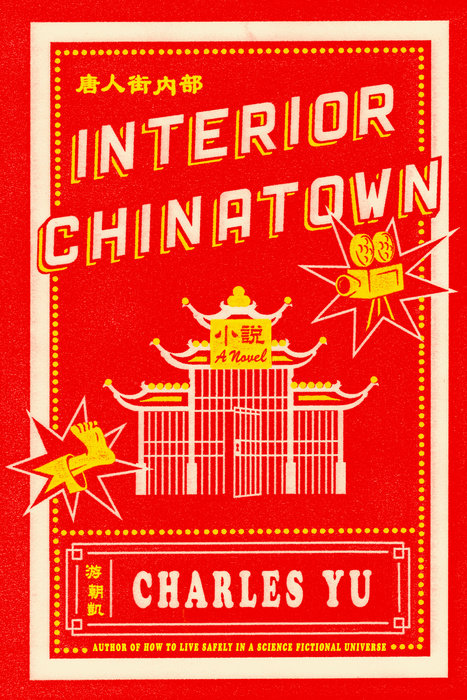
Once upon a time, when postmodernism was young—before it became what-the-hell-is-postmodernism-really(?) and post-postmodernism—unique literary conceits were enough to draw oohs and ahs from critics. Think of John Barth with the nested narrative loops and literary equations of Lost in the Funhouse; Nabokov with the fiction inside poetry inside criticism of Pale Fire; or Coover with his cinematic A Night at the Movies. Great as those works were in their time, the audacious formal tricks that defined them have, to a great extent, already been tried. The novel as screenplay…or treatment…or cinema, for example, has been done and done and done. So much that when I came to Charles Yu’s latest, Interior Chinatown, I wondered whether there could possibly be enough of a point to what seems primarily a formal experiment. Could Yu, a writer I confess to liking, even admiring, possibly do enough to justify publishing a novel like this in 2020? Then I read it. And, in this instance, at least, reading is believing.
Driven as Interior Chinatown is by the form and fragmentation of a screenplay, never mind its satirical focus, you wouldn’t expect it to pack the emotional heft it does. Maybe that has to do with the number of less-is-more choices Yu makes here, the way he pares down to the essential not only in terms of prose but in story and characterization. True, Interior Chinatown may be about big issues like family, culture, and society but this is fundamentally the story of one man. That man is Willis Wu, aspiring Kung Fu Guy (KFG).
Having progressed through a litany of pre-determined Asian-American roles, including, of course, Generic Asian Man 1, 2, and 3, Willis is trapped in the diabolical TV industry that is Interior Chinatown’s America, a place where all that’s left for him is potential ascension to KFG, the pinnacle of Asian-American achievement. This arc of confined ambition and outwardly determined goals is one we see acted out by the rest of the book’s predominately Asian cast from Willis’ father (Old Asian Man) to his mother (Old Asian Woman) and love interest, Beautiful Asian Woman. But it’s in Willis’ “big break,” his guest role on Yu’s invented American cop show, Black and White: Impossible Crimes Unit (ICU) that the story achieves its greatest effect, more than earning its formal gymnastics.
The satire is brilliantly sharp, here, the canvas an SVU sendup that perfectly encapsulates the struggles of people of color in America. Smart, funny, and an effortless read, this is a book that never comes across as a racial screed against any one group. Rather, Interior Chinatown is about America, where minorities often struggle to cling to memories of a distant homeland while embracing a new land that often seems, like the old one, to be honest, as though it doesn’t want them around.
***
Interior Chinatown
by Charles Yu
Pantheon; 288 p.
Follow Vol. 1 Brooklyn on Twitter, Facebook, and sign up for our mailing list.
